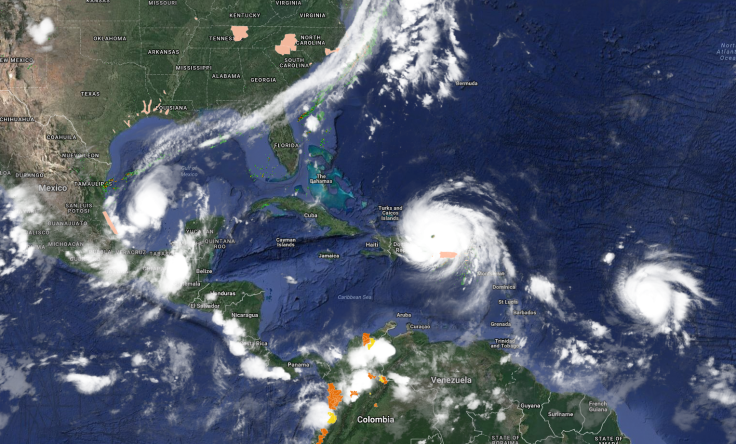Hurricane Irma: Here's what the UK government is doing to help its overseas territories
Numerous British territories in the Caribbean have been caught up in the hurricane.
The British government has announced a series of measures to help tackle the growing crisis left behind in the wake of Hurricane Irma after criticism that it wasn't doing enough to support its overseas territories caught up in the devastation.
At least eight people have been confirmed dead with entire islands flattened by the category 5 storm, which hit the British overseas territories of Anguilla and the British Virgin Islands.
Issuing a statement from the House of Commons, Sir Alan Duncan, minister of state for Europe and the Americas, said: "Anguilla received the hurricane's full blast. The initial assessment is that the damage has been severe and in places critical. At the moment Anguilla's port and airport remain closed.
"The British Virgin Islands were also not spared the hurricane's full force. Our initial assessment is of severe damage and we expect that the islands will need extensive humanitarian assistance which we will of course provide."
The Royal Navy vessel Mounts Bay is already in the Caribbean and is expected to reach some of the affected British territories today. The ship contains marines and engineers who will be able to provide assistance to those caught up in one of the worst storms to ever hit the Atlantic.
In addition to the vessel, charter flights are on standby in order to deliver aid and supplies to the worst affected areas. On Thursday afternoon (7 September), Defence Secretary Sir Michael Fallon will chair a meeting of the emergency Cobra committee.
Overnight on Wednesday 6 September, Prime Minister Theresa May spoke with the French President Emanuel Macon. A spokesman for the prime minister said: "The PM updated the president on our response, noting that DfID humanitarian advisers had already deployed to the region to carry out damage assessments and provide humanitarian support."
"Both leaders agreed to cooperate closely, including with the Dutch, to understand the extent of the damage and to coordinate the relief effort."

There has been criticism that the British government hasn't done enough to help those in overseas territories. Dorothea Hodge, a former UK EU representative for the government of Anguilla, called the government's response to Irma "absolutely disgraceful" and "absolutely pathetic".
Hodge was responding to an announcement by Priti Patel, international development secretary, that the UK was sending a naval ship and three humanitarian experts to the area. Hodge criticised that it had taken the government a day to react to the unfolding crisis in the Caribbean.
"In comparison to the French president who has set up an emergency fund, an emergency hotline and a reconstruction fund her [Patel's] response after the storm has passed is absolutely pathetic," Hodge said.
She continued to the Guardian: "What is needed now is a commitment to an immediate effective humanitarian, response, food, water, shelter, emergency health care, and a long-term reconstruction fund to get the island back on its feet after this battering."
Sir Alan Duncan said that the "relationship between overseas territories and their parent countries differs".
"Whilst French territories are directly governed, that is not the case with our overseas territories," he said. "While this means that our responses will be different we will seek the same objectives and are taking immediate steps to do so."
© Copyright IBTimes 2025. All rights reserved.




















